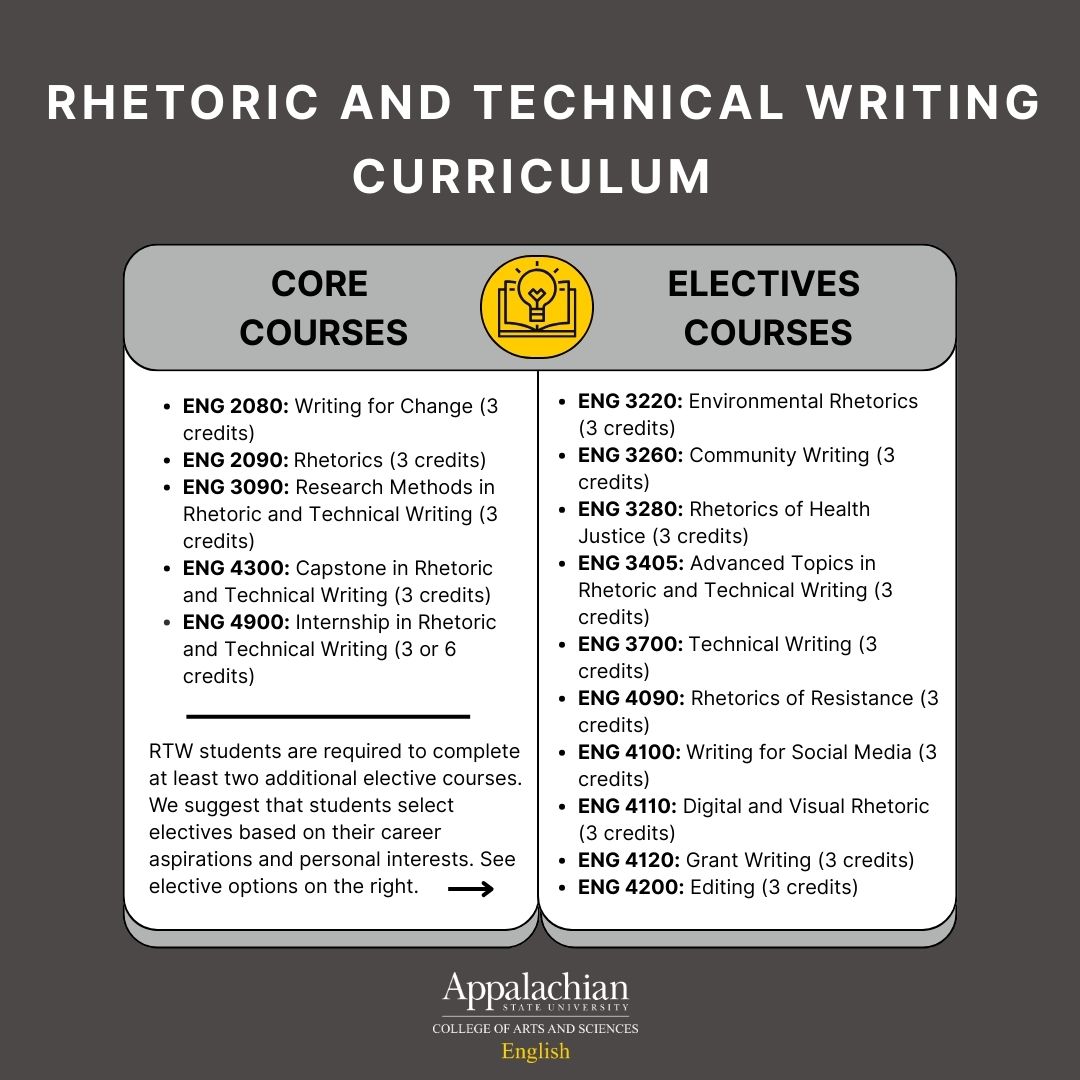Rhetoric and Technical Writing Curriculum
The Rhetoric and Technical Writing (RTW) program at Appalachian State University is one of the few of its kind in North Carolina. Our program is a blend of theory and practice with a focus on writing for change. Our concentration prepares students to work in public policy, social advocacy, public relations, marketing, advertising, public service, and general communication within engineering, science and technology/usability firms. Graduates of our program also matriculate into law school or graduate school.
Our program's coursework is often experiential with an aim to prepare students for workplaces. We emphasize building a professional portfolio in our courses and through our required internship program. The professional portfolio is further refined in the senior capstone experience. A majority of students who choose to go into industry upon graduation are employed in the field within a year. Complete curriculum information can be found here in the course catalogue. You can also view our course descriptions.
